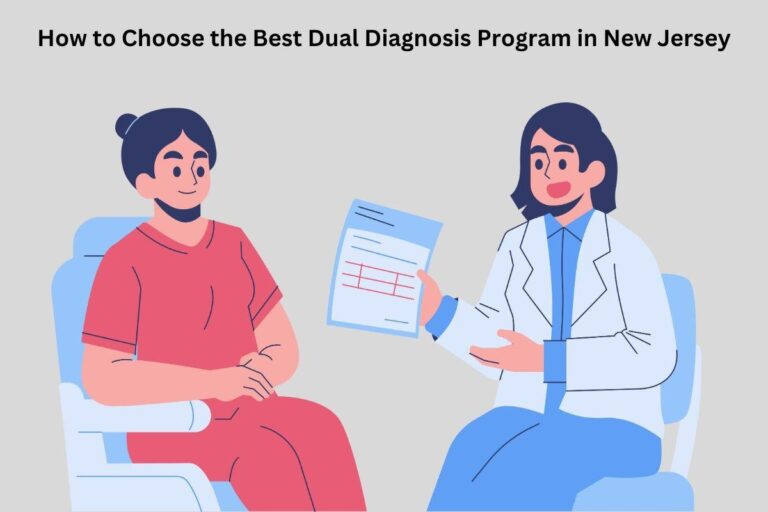Let’s be real—dealing with both a mental health disorder and substance abuse is incredibly tough. You’re not just facing one battle, but two. And finding the right dual diagnosis treatment program in New Jersey can feel overwhelming. You want a place that truly understands what you’re going through, not just another rehab that treats addiction without addressing the deeper mental health struggles fueling it.
So, how do you find the best program? One that offers real solutions and not just a temporary fix? Stick with me—I’ll walk you through exactly what to look for so you can make an informed, confident choice.
What Is a Dual Diagnosis Program—and Why Does It Matter?
A dual diagnosis program is designed for people dealing with both substance abuse and mental health conditions like anxiety, depression, PTSD, or bipolar disorder. Traditional rehab programs often focus only on addiction, but if your mental health issues aren’t treated at the same time, relapse is much more likely.
The best dual diagnosis programs use integrated treatment, meaning both conditions are tackled together. This approach provides the best chance for lasting recovery because it gets to the root of the problem rather than just putting a Band-Aid on it.
What to Look for in a Dual Diagnosis Treatment Program in New Jersey
1. Accreditation and Licensing—Because Quality Matters
Not all treatment centers are created equal. Make sure any facility you’re considering is properly licensed and accredited. Look for credentials from organizations like:
- The Joint Commission (a gold standard in healthcare accreditation)
- CARF (Commission on Accreditation of Rehabilitation Facilities)
- New Jersey Division of Mental Health and Addiction Services (DMHAS)
These certifications mean the program meets high standards for patient care, ethical treatment, and evidence-based approaches.
2. Personalized Treatment—Because One Size Does NOT Fit All
Recovery isn’t a cookie-cutter process. You need a program that tailors treatment to your unique situation. A luxury rehab will start with a comprehensive assessment to develop a plan that works for YOU. This should include:
- Psychiatric evaluations to properly diagnose any mental health disorders
- Addiction assessments to gauge the severity of substance abuse
- Medical history reviews to factor in physical health and family history
If a program doesn’t prioritize an in-depth evaluation, that’s a red flag.
3. Evidence-Based Therapies—Because Science Works
The best dual diagnosis rehab centers in NJ rely on proven treatments, not just trendy buzzwords. Look for programs that offer:
- Cognitive Behavioral Therapy (CBT) – Helps you rewire negative thought patterns.
- Dialectical Behavior Therapy (DBT) – Teaches skills for managing overwhelming emotions.
- Medication-Assisted Treatment (MAT) – Uses FDA-approved meds to ease withdrawal and cravings.
- Trauma-Informed Care – Focuses on healing past trauma that may be fueling addiction.
A good program will mix these approaches to create a plan that works specifically for you.
4. Experienced, Compassionate Staff—Because You Deserve the Best Support
Your recovery depends on the people guiding you through it. The right program should have a solid team of:
- Psychiatrists and Psychologists who specialize in co-occurring disorders
- Licensed Addiction Counselors (LACs) who know how to handle substance abuse challenges
- Medical Doctors and Nurses to monitor physical health
- Holistic Therapists offering alternative approaches like yoga, mindfulness, and acupuncture
When researching facilities, don’t be afraid to ask about the team’s qualifications and experience. The more knowledgeable and compassionate they are, the better your chances of success.
5. Inpatient vs. Outpatient—Which One Is Right for You?
The best type of treatment depends on your situation. Here’s the breakdown:
- Inpatient (Residential) Treatment – Live at the facility with 24/7 support. Best for severe cases where structure and supervision are needed.
- Outpatient Treatment – Live at home while attending therapy. Ideal for those with a strong support system and milder conditions.
- Partial Hospitalization Programs (PHPs) and Intensive Outpatient Programs (IOPs) – Middle-ground options that offer structured treatment but allow you to return home at night.
Not sure which is best for you? A good facility will help you figure it out.
6. Holistic and Alternative Therapies—Because Healing Is About More Than Just Talk Therapy
Many top-rated New Jersey dual diagnosis rehab centers include holistic treatments that support mind-body healing, such as:
- Yoga and meditation
- Art and music therapy
- Equine (horse) therapy
- Nutritional counseling
- Fitness and wellness programs
These approaches can reduce stress, boost mood, and make the recovery process feel more fulfilling.
7. Aftercare and Relapse Prevention—Because Recovery Doesn’t End After Rehab
Leaving treatment is just the beginning. The best programs offer aftercare plans to help you stay on track, including:
- Support groups (AA, NA, or SMART Recovery) to keep you connected
- Ongoing therapy and counseling to work through life’s challenges
- Sober living homes for those who need a structured environment
- Life skills training to help you rebuild your life post-rehab
A strong aftercare plan means a much lower risk of relapse.
Insurance and Payment Options
Cost shouldn’t stop you from getting help. Many dual diagnosis treatment centers in NJ accept:
- Private insurance
- Medicaid and Medicare
- Sliding scale payments or financing options
Before committing to a program, check what’s covered under your insurance and explore payment plans if necessary.
Final Thoughts: Take the First Step Today
Choosing the right dual diagnosis program in New Jersey is a big decision, but you don’t have to figure it out alone. Focus on finding a place that offers comprehensive care, evidence-based treatments, experienced professionals, and strong aftercare support.
Your journey to healing starts with one step—reaching out for help. Don’t wait. Find a program that understands what you’re going through and is ready to help you reclaim your life.


